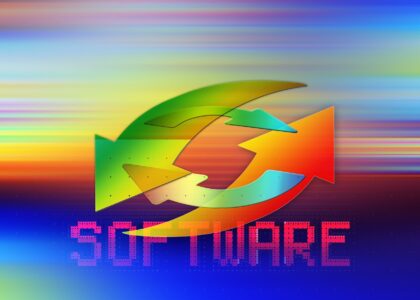Ah, we need some help to run our software, don’t we? We do, and there is a really good reason why. Software doesn’t just run on air. There are layers and layers of software which help us run other software. It is like a software-ception situation, where a dream is within a dream, or in this case a dream on a dream.
System software is a necessary part of every single thing we use nowadays, and it is because writing code that a machine can understand is really unintuitive and difficult for us humans.
Here is what system software is and when and why we use system software.
100100 – Who Understands Binary?
Computers think using binary code, meaning ones and zeroes. This is problematic for us humans, because we like language and syntax, and while some could code using machine code, others are far more likely to enjoy using syntax and even those who want easy-to write syntax, which is why languages like Python are really popular nowadays, while something like assembly and C are used by those who prefer something closer to the machine.
Since binary language is hard to understand and there are few people who want to work with assembly, something had to be thought of to make compatibility easier and high level programming efficient.

System Software – Layers of Compatibility
System software typically refers to a system which provides a platform for other software to run on. The simplest example is an operating system. An operating system is used to provide a platform for applications to run, without having to go through the machine on their own.
This mostly helps developers, because they can build a program that only has to be compatible with an operating system, where the system will translate all the program’s instructions to the processing unit. This makes development a lot easier and in turn, makes the end user’s life a lot simpler. They can just run things without a hiccup.
Other Types of System Software
Having said that system software is a platform for other software to run on, we can also include game engines in the category, among other things such as application software and utility software.
Game engines are easy to understand, because they provide a framework for developers to build games on.

The engine does a lot of work and you have to do (somewhat) less work in order to build a game. Examples of game engines are Unity, Unreal Engine and Frostbite.
Utility software helps administrators monitor their system and make use of its resources, debug and do what is necessary to keep things running, without having to interact with the machine directly.
What is the Future of System Software?
Given how we are working on cross platform compatibility, we are looking at system software and additional software that will help support software from other platforms as well. A good example is Valve integrating Wine and DXVK, to build Proton and allow running native Windows games on Linux, almost flawlessly.
The next step is the ability to run almost all things natively, or rather, as close as possible to the native system. Windows 11, for example, has an Android emulator, which means you could technically run Android applications, like video games, playing them on the big screen.
System software is a platform for other software to run on, typically operating systems, but also game engines, compatibility layers and platforms like system as a service.
All of this serves to make development and running end user applications easier, as well as to maintain other systems and build other applications and even products.








